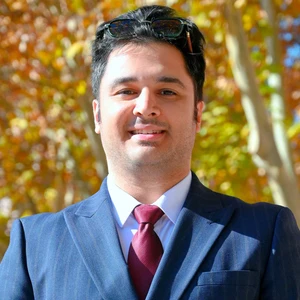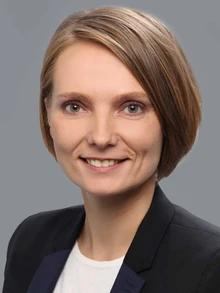
Stalemate Persists in the Armenia-Azerbaijan Peace Process
 By Vasif HUSEYNOV, PhD, Head of Department, AIR Center, Adjunct Lecturer, ADA and Khazar Universities, Baku By Vasif HUSEYNOV, PhD, Head of Department, AIR Center, Adjunct Lecturer, ADA and Khazar Universities, Baku
Armenia and Azerbaijan remain at an impasse in their ongoing peace process, facing the conditions of withdrawing international lawsuits and agreeing on a ban against third-party military forces along their border. Armenia’s constitutional claims over Karabakh and the dissolution of the OSCE Minsk Group remain sensitive topics. Azerbaijan insists on amending Armenia’s constitution to eliminate future territorial disputes, while Armenia faces legal and political hurdles in making such changes. Disagreements over reopening transportation links further hinder the peace process. Azerbaijan demands an “unimpeded” land passage to its Nakhchivan exclave via Armenia’s Meghri region, while Armenia insists on controlled transit. This unresolved dispute continues to block progress toward a final agreement. READ MORE
- EGF Editor |
Published on EGF: 28.02.2025
| External Relations
-
Organization of Turkic States Advances Eurasian Trade Connectivity  By Vusal GULIYEV, Policy Advisor at the Center of Analysis of International Relations and Head of Shanghai Office at AZEGLOB Consulting Group By Vusal GULIYEV, Policy Advisor at the Center of Analysis of International Relations and Head of Shanghai Office at AZEGLOB Consulting Group
Amid shifting geopolitical dynamics and increasing global trade demands, the Organization of Turkic States (OTS), comprising Azerbaijan, Kazakhstan, Kyrgyzstan, Türkiye, Uzbekistan, and observer states, has undertaken a transformative Middle Corridor Initiative (MCI) to enhance the route within the global trade landscape. This 6,500-kilometer-long (approximately 4,000 miles) transport and trade route traversing Central Asia, the Caspian Sea, the South Caucasus, and Türkiye has gained renewed prominence as member states focus on developing secure, efficient, and competitive transport corridors to mitigate the challenges posed by sanctions and instability along traditional transit channels. The OTS has already devoted extensive efforts into systematically developing sophisticated logistics and transport facilities through various multilateral treaties signed within the context of MCI. READ MORE
- EGF Editor |
Published on EGF: 22.02.2025
| External Relations
-
Germany’s Perceptions of Turkey’s Policy in the South Caucasus

 By Daria ISACHENKO, PhD, Associate Researcher, SWP Berlin/ CATS
By Daria ISACHENKO, PhD, Associate Researcher, SWP Berlin/ CATS
Franziska SMOLNIK, PhD, Senior Fellow, SWP Berlin
Turkey is a NATO ally, an EU membership candidate, and a confident geopolitical actor. The latter aspect is uppermost in Berlin’s assessment of Ankara’s policy in the South Caucasus, where Turkey’s growing influence is recognised. If they are to make the most of the potential for cooperation, Ankara, and Berlin each need to acknowledge the other’s foreign policy framework and find ways to reconcile Turkey’s autonomous line with Germany’s EU-oriented and often normative approach.
The current state of Turkish foreign policy towards the South Caucasus rather resembles the situation in the Balkans, where “Ankara pursues a parallel, as opposed to an adversarial, strategy to that of the West”. Given that the South Caucasus does not involve sensitive issues such as those that characterise Ankara’s and Berlin’s bilateral relations, nor flashpoints in the Middle East and the Eastern Mediterranean where their positions clearly diverge, it should theoretically be possible for Ankara and Berlin to start exploring areas of cooperation. If that is to happen, a middle ground will need to be found between Turkey’s autonomous action and Germany’s EU-embedded approach. Moreover, Berlin – and Brussels – will have to determine more clearly how to reconcile normative and geopolitical interests.
READ MORE
- EGF Editor |
Published on EGF: 22.02.2025
| External Relations
-
Azerbaijan’s Contribution to Regional Connectivity  By Vusal GULIYEV, Head of Shanghai Office at AZEGLOB Consulting Group and Policy Expert at the Baku-based Topchubashov Center By Vusal GULIYEV, Head of Shanghai Office at AZEGLOB Consulting Group and Policy Expert at the Baku-based Topchubashov Center
Azerbaijan is transforming into a key regional hub through strategic investments in transportation infrastructure, particularly along the Middle Corridor. Expanding rail, maritime, and digital connectivity, the country enhances trade between Europe and Asia. Projects like the Baku-Tbilisi-Kars railway and Port of Baku solidify Azerbaijan’s role in global logistics and economic diversification.
Azerbaijan’s focus on improving transportation infrastructure has been central to its role in enhancing regional connectivity, especially in the broader context of linking Europe and Asia. As part of the effort to revive the historic Silk Road, significant progress has been made in expanding trade and transportation networks—particularly rail and maritime routes that facilitate intercontinental trade along the east-west corridor. This expansion is a critical aspect of Baku’s long-term socio-economic growth strategy. Azerbaijan has consistently prioritized unlocking the trade potential of the Trans-Caspian routes, investing in advanced logistics and transportation infrastructure, including rail lines, highways, and seaports, supported by both domestic and international development initiatives. READ MORE
- EGF Editor |
Published on EGF: 06.02.2025
| Markets
-
The Eurasian Economic Union: A View from Armenia
 By Benyamin POGHOSYAN, PhD, ISPI Senior Associate Research Fellow
By Benyamin POGHOSYAN, PhD, ISPI Senior Associate Research Fellow
Armenia signed an agreement to join the Eurasian Economic Union (EAEU) in May 2014 after halting the process of signing an Association Agreement with the European Union. Many observers noted that Armenia’s then-President Serzh Sargsyan reversed his foreign policy following a meeting with Russia’s president in September 2013 in a U-turn. This decision paved the way for Armenia’s EAEU membership and halted the negotiation of an agreement that would have included, inter alia, a free-trade agreement with the EU. The reversal was likely made under Russian pressure and was influenced by geopolitical and geo-economic considerations. Armenia, supporting the self-proclaimed Nagorno-Karabakh Republic in its conflict with Azerbaijan, saw its alliance with Russia as a crucial deterrent against hostile neighbours, including Azerbaijan, which had significantly increased its military spending.
READ MORE
- EGF Editor |
Published on EGF: 06.02.2025
| External Relations
-
Ukraine Eyes Key Role in Azerbaijani Gas Transit to Europe
 By Fuad Shahbazov, Baku-based independent regional security and defence analyst By Fuad Shahbazov, Baku-based independent regional security and defence analyst
Ukraine is positioning itself as a key transit hub for Azerbaijani gas to Europe, a move that could significantly alter the region’s energy landscape. If successful, this would carve out a new role for Kyiv after Russian supplies stopped flowing to the rest of Europe via Ukraine on January 1, pushing up European wholesale energy prices. The expiration of the Russian gas deal at the beginning of 2025 and Kyiv's decision not to prolong the agreement triggered heated debates within the European Union as countries like Hungary and Slovakia harshly criticised Ukraine, accusing it of igniting the energy crisis with no drastic impact on Russia. READ MORE
- EGF Editor |
Published on EGF: 06.02.2025
| Energy
-
Azerbaijan’s SOCAR Invests in Türkiye’s Energy Sector
 By Fuad Shahbazov, Baku-based independent regional security and defence analyst By Fuad Shahbazov, Baku-based independent regional security and defence analyst
On January 6, the State Oil Company of the Republic of Azerbaijan (SOCAR) announced plans to invest $7 billion in Türkiye’s energy sector in the coming years. Between 2008 and 2024, SOCAR Türkiye, SOCAR’s local subsidiary, invested $2 billion into the development of the petrochemical facilities of the Petkim petrochemical company privatized by SOCAR. The total investments of the company in the Turkish economy accounted for more than $18 billion between the same period, making the company the largest foreign investor in the country. In 2018, Azerbaijan made its largest one-time foreign investment in Türkiye by establishing the SOCAR Star Oil Refinery, which has an oil processing capacity of approximately 214,000 barrels per day. SOCAR’s steady inroads into Türkiye and further into the Balkans and Eastern Europe enable Baku to implement its geopolitical and geoeconomic interests while boosting strategic alliance with Ankara in many important fields READ MORE
- EGF Editor |
Published on EGF: 24.01.2025
| External Relations
-
The U.S.-Armenia Strategic Partnership Charter: What to expect next?  By Yeghia TASHJIAN, Beirut-based regional analyst and researcher, columnist, "The Armenian Weekly” By Yeghia TASHJIAN, Beirut-based regional analyst and researcher, columnist, "The Armenian Weekly”
On January 14, 2025, as U.S. President Joe Biden’s administration breathed its last days, Armenia and the United States signed a Strategic Partnership Charter in Washington, D.C. The document was signed by Armenia’s Foreign Minister Ararat Mirzoyan and U.S. Secretary of State Antony Blinken. This article will highlight the key points of the agreement and present a reflection and analysis on how Armenia can benefit from the Charter to pursue its foreign policy goals, amid the regional reaction and the Azerbaijani president’s recent threats against Yerevan.
As per the agreement, both countries affirm the importance of their relationship as “friends and strategic partners.” They emphasize that this cooperation is based on “shared values and common interests,” which include democracy, economic freedom, sovereignty, and territorial integrity. They also aim to collaborate on innovation and technological advances, bolster energy security and strengthen their relationship in the fields of education, science, culture, rule of law, defence, and security.
READ MORE
- EGF Editor |
Published on EGF: 24.01.2025
| External Relations
-
The Increasing Role of the “Trans-Caspian Corridor” in the Global Supply Chain  By Vusal GULIYEV, Head of Shanghai Office at AZEGLOB Consulting Group and Policy Expert at the Baku-based Topchubashov Center By Vusal GULIYEV, Head of Shanghai Office at AZEGLOB Consulting Group and Policy Expert at the Baku-based Topchubashov Center
The strategic importance of the Trans-Caspian International Transport Route (TCITR) has grown in recent years, paralleling geopolitical and economic developments on both global and regional scales. Against the backdrop of global logistics markets adapting to new conditions, the development of this multifaceted transport route, which encompasses transit states in Central Eurasia such as Azerbaijan, Türkiye, Kazakhstan, and Georgia, has become a priority for many nations and multinational corporations. Following prolonged delays in traditional transport and logistics corridors caused by the COVID-19 pandemic, the Trans-Caspian Corridor began to gain prominence in global freight transport. Its importance was further highlighted after the escalation of the Russia-Ukraine war, creating new long-term opportunities for the sustained development of this multimodal trans-regional route. READ MORE
- EGF Editor |
Published on EGF: 24.01.2025
| External Relations
-
Airplane Crash Exposes Flaws in Baku-Moscow Relations
 By Vasif HUSEYNOV, PhD, Head of Department, AIR Center, Adjunct Lecturer, ADA and Khazar Universities, Baku By Vasif HUSEYNOV, PhD, Head of Department, AIR Center, Adjunct Lecturer, ADA and Khazar Universities, Baku
On December 25, Azerbaijan ended 2024 in nationwide sorrow and resentment following the crash of Azerbaijan Airlines Flight J2-8243 near Aktau, Kazakhstan. The Embraer 190 aircraft, carrying 67 passengers from Baku to Grozny, Chechnya, attempted an emergency landing but tragically crashed. Among those aboard were Azerbaijani, Russian, Kazakh, and Kyrgyz nationals. While 29 people survived, 38, including two pilots and a flight attendant, lost their lives. Initial reports attributed the crash to a collision with a flock of birds, but this theory was soon refuted when parts of the aircraft were found to bear shrapnel marks. The following day, Azerbaijani officials revealed that the crash was caused by a Russian surface-to-air missile, which exploded near the aircraft mid-flight, with shrapnel injuring passengers and crew. This incident has strained Azerbaijan-Russia relations, as Moscow refused to accept responsibility for the tragedy. READ MORE
- EGF Editor |
Published on EGF: 17.01.2025
| External Relations
-
|
|
